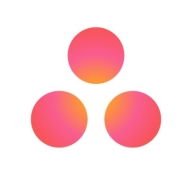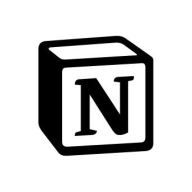

Asana and Notion compete in the project management category. Asana seems to have the upper hand in task tracking and integration capabilities, while Notion excels in flexibility and knowledge management.
Features: Asana offers robust project management tools with various views like Gantt chart, calendar, and board to support organization and collaboration. It is strong in task tracking, custom project templates, and integrates with numerous software tools. Notion provides flexibility in creating customizable workflows, integrating notes, tasks, and databases, especially useful for knowledge management and document organization. It allows seamless content management and data linking.
Room for Improvement: Asana could improve advanced search options, notification settings, dashboard functionalities, and task dependency management. Enhanced user experience is also desired by users. Notion could benefit from improved integration capabilities, UI, mobile app performance, and additional automation features. Both platforms could enhance support for large-scale integrations and ease of use for new users.
Ease of Deployment and Customer Service: Asana supports public, hybrid, and private cloud deployments, offering more options. Its customer service is mixed, with some users reporting delays. Notion supports on-premises and public cloud deployments but has fewer options than Asana. Users commend Notion’s responsive customer experience team.
Pricing and ROI: Asana’s pricing depends on team size and needed features, with free and paid tiers available. Some find it expensive for basic features, though it is seen as reasonably priced for organizations, offering good ROI in efficiency. Notion’s pricing is competitive, especially the free tier, which offers essential functions. It is affordable, with users reporting good ROI by using its customization and integration for workflow optimization.


Asana is web-based software-as-a-service that helps teams coordinate and manage their work. It helps companies move faster by making sure everyone knows the team’s plan and process and who is doing what by when.
Each user can create projects using a list, board, calendar, or timeline view. Within each project, users can add tasks, subtasks, sections, comments, attachments, start and due dates, and custom fields. Project and task followers get notifications on changes or comments on the project and/or task in their Inbox. Individual users can see all of the tasks they're responsible for across all of their projects in a view called My Tasks.
Asana is available in English, French, Spanish, German, and Portuguese.
Notion is an all-in-one workspace that enables teams to collaborate, organize, and manage their work effectively. Its primary use case is to streamline project management, knowledge sharing, and task tracking. With its versatile functionality, Notion allows users to create and customize databases, wikis, and documents, making it a powerful tool for organizing information.
The most valuable functionality of Notion lies in its flexibility and ease of use. Users can create and link various types of content, such as text, images, files, and even embed external resources. This enables teams to centralize their work and collaborate seamlessly, eliminating the need for multiple tools. Notion's drag-and-drop interface and intuitive editing features make it accessible to users of all technical backgrounds.
Notion helps organizations by fostering transparency, improving productivity, and enhancing knowledge management. By providing a centralized platform for collaboration, teams can easily access and contribute to shared projects, reducing communication gaps and ensuring everyone is on the same page.We monitor all Project Management Software reviews to prevent fraudulent reviews and keep review quality high. We do not post reviews by company employees or direct competitors. We validate each review for authenticity via cross-reference with LinkedIn, and personal follow-up with the reviewer when necessary.